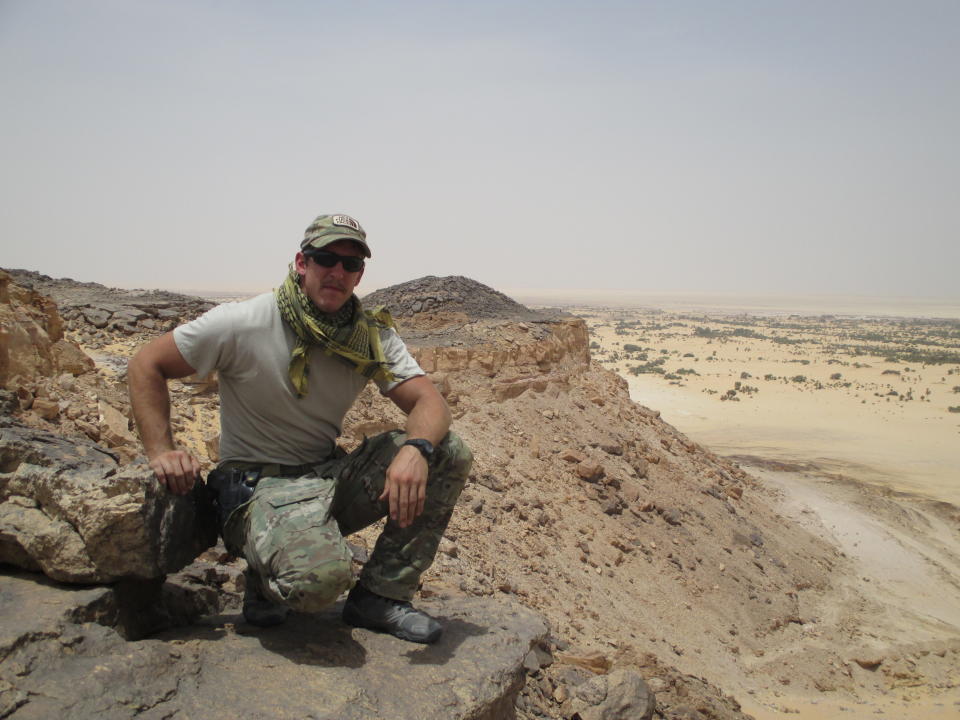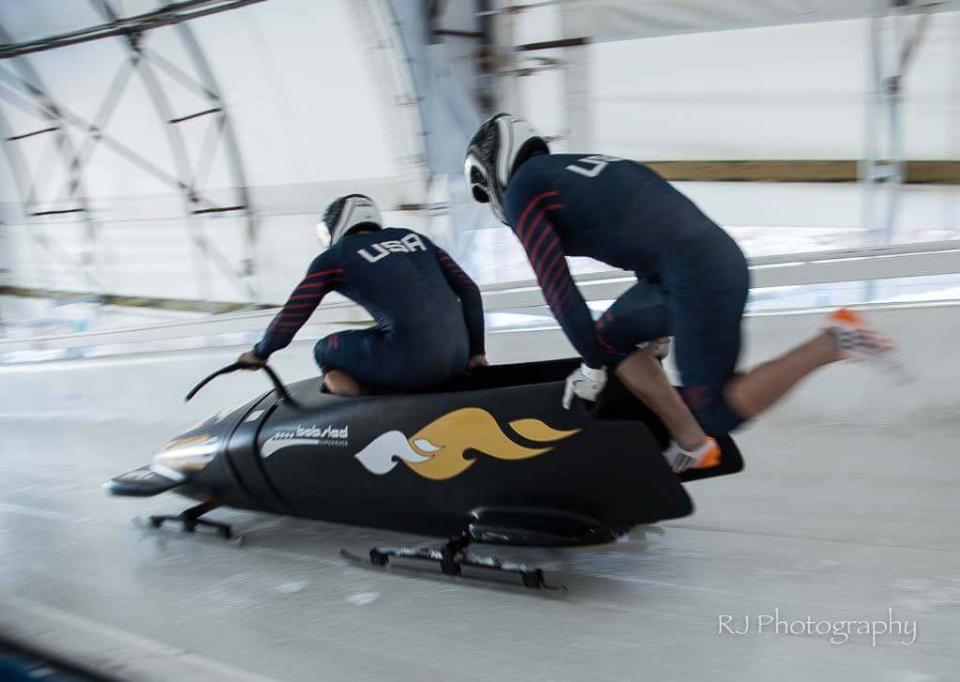How a Green Beret chased his Olympic bobsled dream in Afghanistan
Some train for the Winter Olympics on rinks. Some train on slopes. Some train on a halfpipe.
Nate Weber trained in Afghanistan, pushing military vehicles, at 2 in the morning.
“I’d go out three or four nights, sleeping in mosquito nets,” he says. “I’d do an eight-hour drive over rough terrains and roads and I’m thinking, ‘I haven’t worked out in two days; I gotta try and keep myself ready for this.’ ”
When Weber isn’t a Team USA bobsledder, he’s an active duty Green Beret. Check that: When he isn’t an active duty Green Beret, he’s a bobsledder. Either way, he’s representing the stars and stripes in a way few Americans ever do – times two.
“He’s a beast,” says teammate Sam McGuffie, and yes that’s the same Sam McGuffie who played running back at Michigan and then at Rice. Another teammate is former UCLA receiver Carlo Valdes, who played with Matt Barkley in high school.
Along with pilot Codie Bascue, the four of them can squat more than 2,000 pounds combined. But Weber is on another level.
“Literally Nate is a beast,” McGuffie says. “You look at him and you wouldn’t know. Unassuming guy. Then he hits the sled and he almost breaks the handles off.”

Some of Weber’s background cannot be told, because the guy is a member of Special Forces and he’s restricted from saying too much. But we can say he’s served in Afghanistan, Niger, Cameroon and Iraq. He’s been a Green Beret for seven years. And after the Games on the Korean peninsula are over, he will remain on active duty. Let’s hope he’s not active on the Korean peninsula.
“I’m not concerned about it,” he says of the unsettled geopolitical climate there. “The Olympics are a time where I think everyone does the right thing and they put animosity about politics aside. It would be a brazen move [for North Korea] to do anything while they have their own athletes there. So I’m going to keep focused on competing and winning while we’re over there.”
He does have a sense of humor, though.
“I’ll probably be the person people turn to if anything happens,” he quips. “Everyone evacuate to the bobsled track!”
Obviously a Green Beret does not scare easily, but ask Weber about the first time he went down a track.
“I was terrified the first time,” he says of his maiden voyage at Lake Placid, where he trains now. “Absolutely terrified. I was with a young pilot. I had never been down a track. I got down, and it gets real at about turn four. It hits the turbo boosters and you’re holding on. You’re definitely a little more scared on the second one.”
(McGuffie’s quote about his first time on a bobsled track is even better: “It’s basically like getting put in a Dumpster and being dropped down a double-black cliff.”)
Weber didn’t need to go into bobsled to fill time; he was plenty busy with his day job. But during a trip to a restroom at a friend’s barracks at Fort Bragg, North Carolina, he saw a magazine with a profile of bobsledder Justin Olsen.
“If this guy can win a gold,” he thought, “I can make an Olympic team.”

Weber’s light bulb moment has become another laugh line now – “I took a [expletive], and it changed my life,” he likes to say – but he’s very serious about his Olympic dream. Perhaps too serious.
“I was running sprints outside a gym in Afghanistan,” he says, starting a story. “We have guns that shoot mortars out of the sky. One goes off, really close. I see an explosion. I get pellets raining down on me – some in my arm, one in my face. So I stand up next to a building. Alarms are going off. Wow, it got my heart racing. And I think, ‘I bet I’ll run really fast now.’ I went back on the line, thinking ‘They normally shoot only one.’ So I ran sprints. I had a couple people saying, ‘Sir, what are you doing?’ But I’m really hyped up.”
He catches himself and tones it down just a notch. “You can say I’m an adrenaline junkie,” he admits. “You can say it’s inappropriate at times.”
He’s certainly turned that trait into a noble cause – two, really. The Army is allowing him to chase his Olympics dream while he lives the military dream he’s had since he watched the 9/11 tragedy unfold on television in his high school classroom north of Denver. Less than 10 years after that day, he was a Green Beret.
Weber’s 4-man team is pretty good, too, even though nothing is certain yet in terms of qualifying. He might be in Korea early next year, and he might be elsewhere.
“Either way,” he says, “I get to wear ‘USA.’ ”

